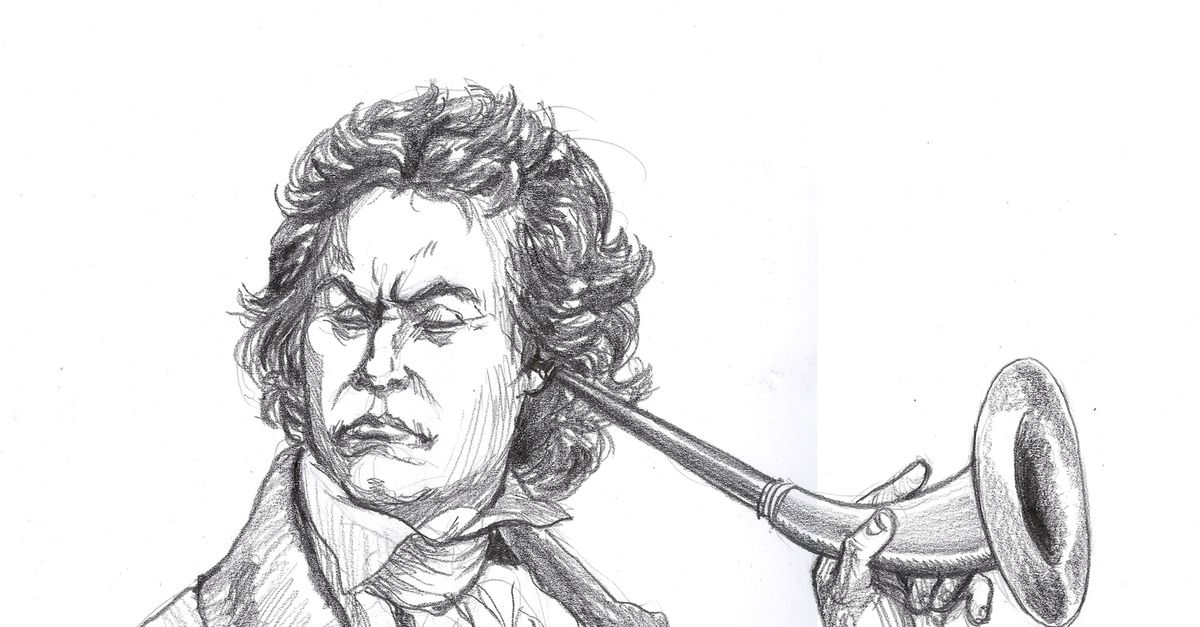Musical Vibrations of VICTORY — Ludwig van Beethoven’s Fifth Symphony
 A Reblog from Dr. Kay’s Blog, now under reconstruction.
A Reblog from Dr. Kay’s Blog, now under reconstruction.
Musical Vibrations of VICTORY — Ludwig van Beethoven’s Fifth Symphony
I was an extremely sensitive child, terribly upset by dissension and any form of anger. Playing piano and listening to music was a godsend for me. If I became upset or frightened, I would play or listen to soothing music that would invariably calm me down. I learned early on that music was a powerful — and helpful — therapy. I would later come to understand that music is an emotional medium, and as such, speaks to our emotions. But it not only speaks to them, music can change them.
When I began taking piano lessons from Miss Emelie Goetze back in 1953, I had no idea the effect this woman and her philosophy would have on me. She would not only introduce me to the great classical composers but would make their music come alive in magical ways.
From my earliest days with Miss Goetze, I was terribly smitten by the remarkable composer, Ludwig Van Beethoven. Beethoven to me was power, and his music bold, heroic, and inspiring. Not only was his music stirring, but his personal story was, as well.
At the age of twenty-six Ludwig’s personal physicians informed him that he had tinnitus (ringing in his ear). The ringing would get worse as the years progressed, and he would eventually become deaf!
When Beethoven heard this his world fell apart. At this time in history (1770 to 1827) musicians needed to find wealthy patrons – usually a prince or duke – to sponsor them. The patron would provide the composer with money for their needs, and the composer’s duty was to continue turning out quality musical compositions. Beethoven knew if his patron/s heard he was going deaf, his sponsorship would likely end. Therefore keeping his health issue secret became his top priority.
However, problems would naturally arise during question and answer sessions with others – mostly his patrons and fans. Beethoven often responded inappropriately – some considered rudely – because he did not really hear the question! Over time he developed a reputation for being aloof, disinterested, and pompous.
“I had so much compassion for this beloved Maestro. Here was a musical genius who experienced so much personal pain – physical, mental, and emotional – and still produced some of the most magnificent music ever written. I frequently listened to Beethoven during my own Dark Nights, drawing inspiration not only from his music but from his life story. He became one of my heroes….
Around 1816, Beethoven reverted to using the cumbersome ear trumpet or horn. Ear trumpets were tubular or funnel-shaped devices which collected sound waves and helped amplify them. These ear horns assisted Beethoven to some degree until he went completely deaf. Many other people in the 18th century probably used similar devices in an effort to hear better.
Later, Beethoven used conversation books to communicate. A visitor would write an observation or question in the book, give it to the Maestro, who would then write a reply. So the composer DID find ways to continue communication with others as he pursued his composing. It was not easy, though.
…. The Fifth Symphony in C Minor was written between 1804 and 1808. It has become possibly THE most beloved symphonies in classical music history. Since the Second World War (1939-1945) this piece has sometimes been called the “Victory Symphony.” “V” is the Roman character for the number five; the phrase “V for Victory” became well known as a campaign for the Allies during the war.When you listen to the Fifth, you can actually feel the power of the musical vibrations. But though the music is powerful, it is never out of control. It remains within a canopy that does not allow for wild abandon or rebellious feelings to take charge. This is important since, as an emotional medium, music can awaken and reinforce emotions within us – without our even knowing it is happening.”
As you listen to the various movements you indeed experience a variety of feelings. One reviewer even referred to the 3rd movement of the 5th as a delightfully dark scherzo. But Beethoven never leaves us in turmoil, confusion, or darkness. By the end of his score, we always experience (feel) triumph, overcoming, and victory. Listen to this last movement and you will see what I mean. This is something that needs to be heard AND experienced. Listen to HOW VICTORY ACTUALLY FEELS!
I ABSOLUTELY LOVE YOUR MUSIC AND YOUR SPIRIT, DEAR LUDWIG VAN BEETHOVEN!!!








